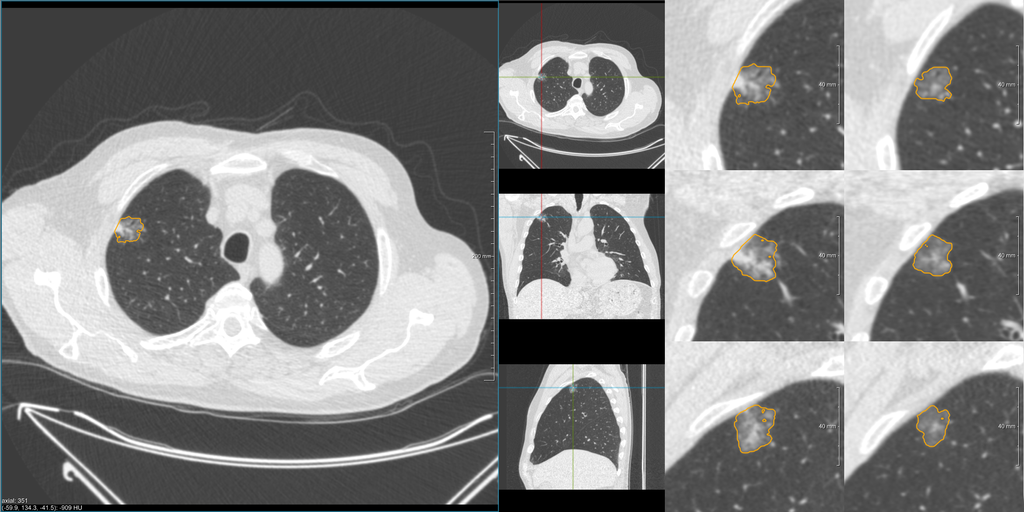
Job description
We are looking for 2 highly motivated and talented individuals to join our team as a PhD candidate. You will be part of one of the 17 new ICAI labs, named MERAI Lab, consisting of 5 PhD students, who will collaborate on creating AI solutions for the lung oncology field. MERAI Lab is a multi-disciplinary collaboration between Radboudumc and MeVis Medical Solutions with the mission to create world-leading AI-supported software solutions for healthcare.
This lab is part of the 10-year LTP ROBUST program “Trustworthy AI-based Systems for Sustainable Growth” consortium, which unites 17 knowledge institutions, 19 participating industry sponsors and 15 civil-social organisations from across the Netherlands. You will gain valuable experience working with an industry partner, and will be able to tap into a wealth of networking, career development, and training opportunities in conjunction with ICAI, the Innovation Center for Artificial Intelligence at the University of Amsterdam.
MERAI Lab aims to create AI solutions in the lung oncology field that will improve the accuracy in the interpretation of the increasing amount of imaging that is performed for screening, optimal treatment selection and treatment monitoring, and reduce the time needed to report these scans. Both combined will improve the cost-effectiveness of our healthcare system. For responsible use of the developed AI algorithms, it is essential that we guarantee robust and trustworthy AI solutions that reach performance close to human experts.
The PhD-candidate will be involved in the development of AI algorithms that support the interpretation of CT scans. We have 2 open PhD positions. The PhD positions will be based at Radboudumc. The project will require a combination of technical and scientific skills, including expertise in image analysis, machine learning, and software development. The PhD-candidate will work closely with a multidisciplinary team of radiologists, engineers, and industrial partners, and will have the opportunity to contribute to the development of cutting-edge technology that has the potential to transform the field of radiological imaging.
Tasks and responsibilites
- Conduct research in the development of AI algorithms that support the interpretation of radiological imaging
- Collaborate with a multidisciplinary team to translate cutting-edge technology into clinical practice
- Publish research findings in peer-reviewed journals and present at international conferences
- Mentor junior team members and contribute to the development of the lab's research direction
Profile
- be a creative and enthusiastic researcher with an MSc degree in Computer Science, Physics, Engineering or Biomedical Sciences or similar
- have a clear interest to develop artificial intelligence algorithms and an affinity with health care and/or cardiology.
- have good communication skills and enjoy working in a multidisciplinary team
- have expertise in software development, preferably in Python
- having experience with deep learning, machine learning, and image analysis or time series analysis is a plus.
Terms of employment
You will be appointed for four years as a PhD student with the standard salary and secondary conditions for PhD students in the Netherlands. The research should result in a PhD thesis.
Organization
You will work in one of the four new AI labs, closely linked to the Diagnostic Image Analysis Group (DIAG). DIAG develops computer algorithms to interpret and process medical images. The group currently consists of around 70 researchers. Radboud University Medical Center and Radboud University are located in Nijmegen, the oldest Dutch city with a rich history and one of the liveliest city centers in the Netherlands. Radboud University has over 17,000 students. Radboud UMC is a leading academic center for medical science, education and health care with over 8,500 staff and 3,000 students.
Application
Please apply via this link. You should supply a motivation letter, your CV, links to a Google Scholar profile, a list of grades and courses you have followed including online courses on deep learning and similar topics, and links to any publications you have written plus any code you have written and is publicly accessible, e.g., on a GitHub account. Applications are processed immediately upon receipt.
